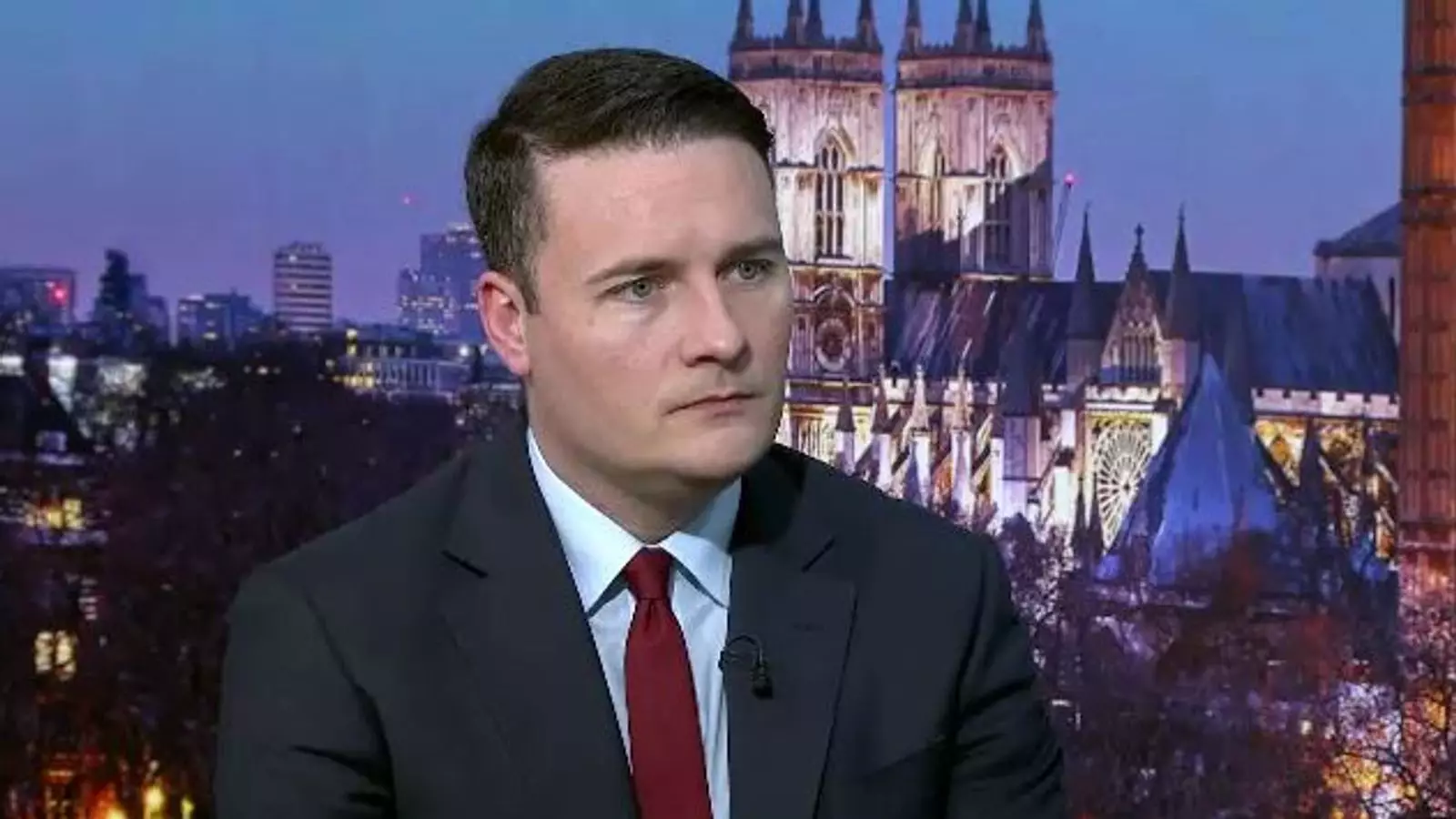Wes Streeting, the newly appointed health secretary, has recently taken a bold step by announcing the abolition of NHS England, a decision that has left many questioning the rationale behind such an abrupt change of direction. During his campaign and prior to Labour’s electoral victory last summer, Streeting firmly believed that he would not engage in significant reorganizations within the NHS. His words echoed a commitment to avoiding “big costly reorganizations,” yet the unfolding events reveal a profound shift in his thinking almost overnight. It raises the crucial question: what led to this drastic policy pivot, and is it truly in the best interest of the healthcare system and its workforce?
Duplicity in Leadership
Streeting’s admission that he had not anticipated this move yet finds it necessary highlights an alarming inconsistency in political leadership and policy-making. To announce that a significant overhaul of the NHS infrastructure is necessary essentially acknowledges a failure in foresight. How can a leader claim to prioritize patient care while simultaneously endorsing a controversial restructuring? This contradiction unveils a concerning trend in politics—where bold assertions are often replaced by reactive measures rather than proactive planning. While the intention to streamline operations and minimize bureaucratic redundancy is commendable, it feels more like a hasty response to long-standing issues, rather than a well-thought-out strategy rooted in comprehensive insights and analysis.
Job Losses and Human Cost
The immediate consequence of this decision is the anticipated loss of over 9,000 jobs. Confirming that nearly half of the workforce at NHS England will be affected raises grave concerns about the human impact of political maneuvers. Though Streeting attempts to convey sensitivity towards those who will be displaced—recognizing that this is “an anxious time” for many—it seems insufficient in addressing the real trauma that comes with mass layoffs. The language used, such as “treating people with care and respect,” often feels like mere platitudes in the face of a harsh reality. The government cannot overlook the emotional and economic fallout for these individuals and their families. As Labour pushes forward with their policy changes, it begs the question: how can they balance such drastic measures with compassion?
A Paradigm Shift in Healthcare Management
Streeting’s rationale hinges on the belief that the existence of two head offices—NHS England and the Department of Health and Social Care—has created inefficiencies that must be addressed. The argument follows that reducing overlap will lead to more effective management of resources and better patient care, but this assertion dives into murky waters. While cutting down duplication sounds appealing in theory, one cannot ignore the potential chaos that may ensue from dismantling established systems. Political motivations that aim to return control of the NHS back to a singular entity might simplify management structures, yet they risk ignoring the complexities of modern healthcare that require collaborative efforts across various sectors.
The Illusion of Public Service Integrity
Streeting has positioned Labour’s vision for the NHS as a staunch defense of public healthcare. Yet, his mention of utilizing private sector capacity raises eyebrows about the future direction of the NHS. While he ardently denies any inclination toward part-privatization, public trust remains fragile in the wake of historical shifts toward outsourcing. The entrenchment of a two-tier system in healthcare poses a real concern for those unable to afford private services. Ensuring equitable access to healthcare is essential, yet the reliance on private entities to alleviate burdens can inadvertently worsen disparities in care for the most vulnerable populations.
A Politically Charged Landscape
Amidst this political storm, Keir Starmer’s justification for scrapping NHS England to restore “democratic control” adds another layer of complexity to the narrative. This framing echoes a sentiment of return to British values, yet political expediency should not serve as a primary motivator for such significant institutional changes. The recurring theme among political leaders is the need to resonate with public sentiment, but the challenge remains balancing ambition with accountability. Only time will reveal if this decision, fraught with uncertainty, indeed leads to the promised revival of the NHS, or if it simply rearranges the deck chairs on a sinking ship.
As UK healthcare faces a crossroads, considerations about efficiency, the human cost of policy changes, and the safeguarding of public trust stand paramount.

